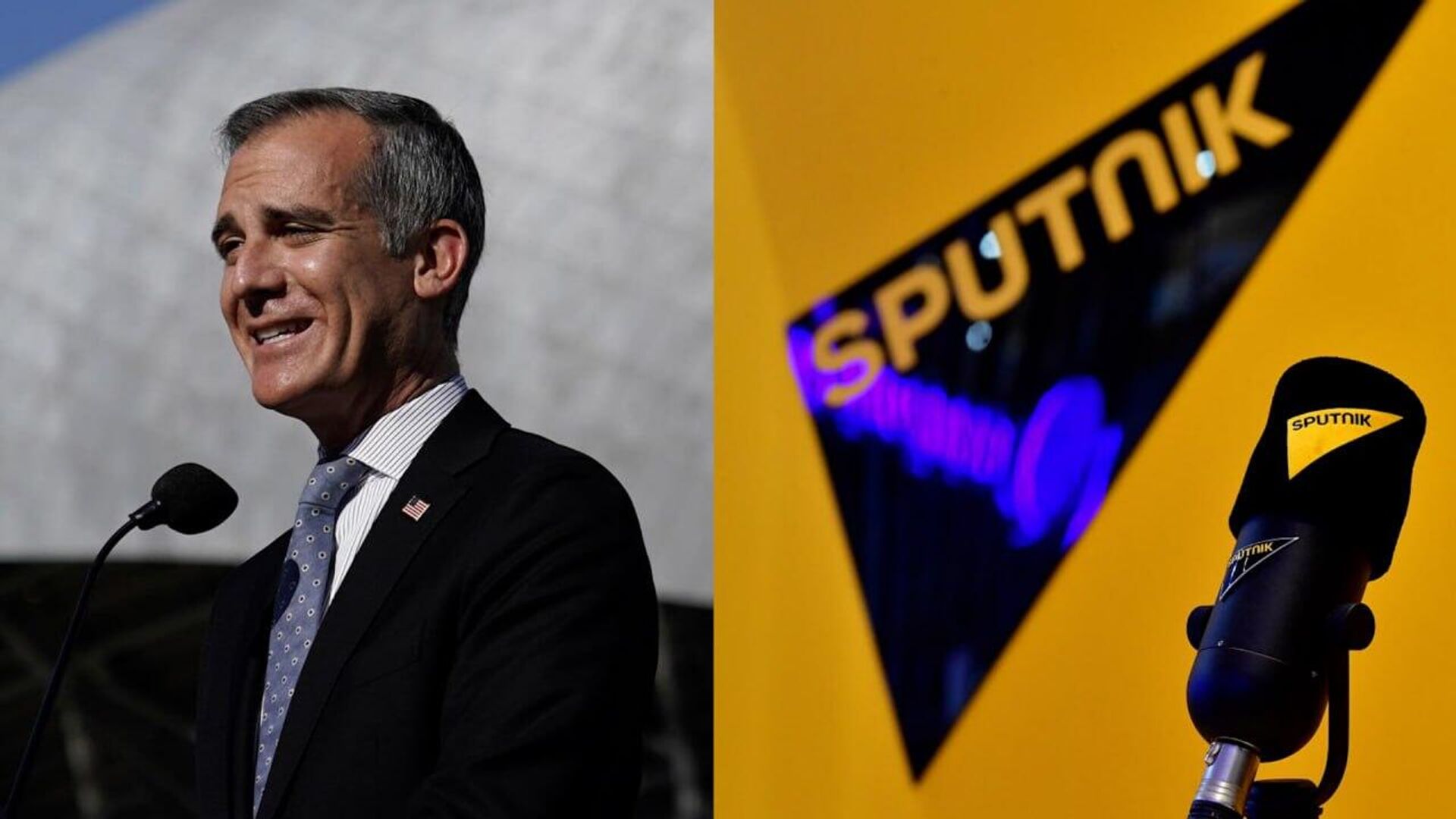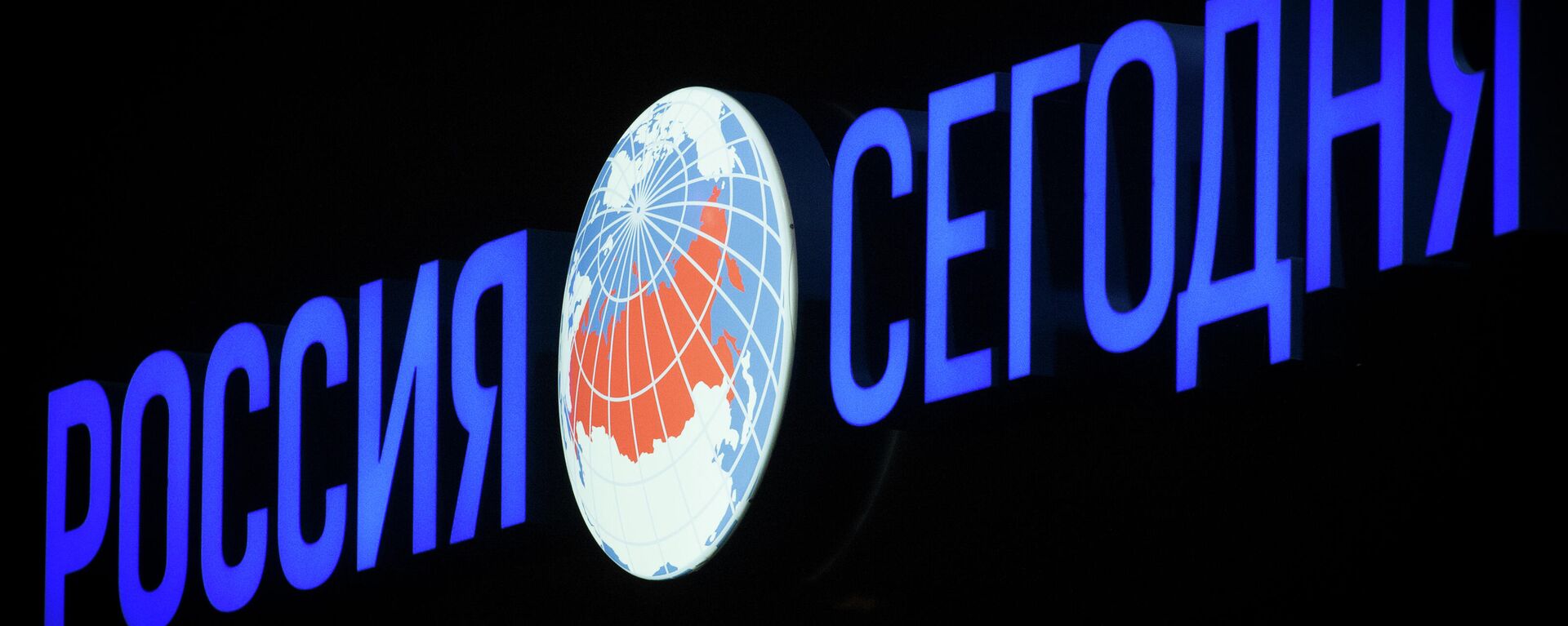US Embassy Pressures Indian Think-Tankers Against Giving Interviews to Sputnik

© AP Photo
Subscribe
Exclusive
Two Indian think-tankers have told Sputnik India that they have been warned against giving interviews to Sputnik and Russian media in general at behest of the US Embassy. In one case, the call came directly from a US Embassy staffer working in New Delhi.
In a bid to intimidate Indian think tankers and covertly influence the public discourse in India, the US Embassy has been running a coercion campaign directed against Indian think-tanks and experts featuring in Russian media outlets Sputnik and RT.
"A US Embassy staffer directly approached me asking not to give interviews to Sputnik. I asked him if it was that serious a matter. He replied, yes," stated an expert affiliated with a New Delhi-based think tank.
The think-tanker received the first call from a US Embassy employee in March, days after Sputnik's critical coverage of the State Department's remarks and US media's coverage of arrest of Delhi Chief Minister Arvind Kejriwal.
Another Indian expert, who heads an independent think-tank, said that he had been "warned" on several occasions against interacting with Sputnik and RT.
"I have been approached and suggested on several occasions to cut down my engagements with Russian media. While I didn't hear directly from the US Embassy, I can say that the people who have discouraged me from giving interviews to Sputnik are very authentic individuals having a reputation of being close to the US Embassy and its network in India. I believe that in general, the US, through its network in India, has been trying to curtail contacts between Russian media and Indian experts and think tanks," the think-tank chief recalled.
He said that he received a similar call as recently as last month, in the wake of him featuring in several articles questioning American policy in Bangladesh following the ouster of Sheikh Hasina.
The think-tanker said that covert American pressure on Indian institutions such as think tanks wasn't a new occurrence, but had definitely intensified in recent months.
"To a degree, the effects of these American influence operations are already being seen in India. Barring government-affiliated and a few credible think tanks, one could easily perceive that most of the so-called independent and neutral think tanks are tilted towards the US, as witnessed in their panel discussions," the expert said.
"What we are seeing is that several powerful Indian think tanks are disseminating narratives suiting the US," he added.
In fact, it is not just the US Embassy through which the American establishment has trying to covertly mould narrative in India. A journalist who runs an independent publication recalled receiving a call from an Indian journalist working for an American publication in March.
“The person enquired me about our reportage on the Maldives, where we were highlighting the links between Islamist radicals and the Muizzu administration. They asked me whether I was working for the Indian government, to which I replied no. Then, they threatened to expose me, after which I hung up," the person said.
Further, these Indian experts slammed the US move to pressure other governments into banning Russian media outlets.
"The US has repeatedly claimed to have championed free speech in the world. I believe the US should release a detailed dossier on the allegations against Russian media before banning them. Moreover, the US can't coerce other countries to back its claims by sharing credible proof. Why should India ban Sputnik and RT? Just because it doesn't suit your criteria," the Indian think tanker said, commenting on a media report at weekend about the US calling on India to "ban and block" RT and Sputnik.
New Delhi has reportedly told the US that the matter didn't "pertain to India" and that India didn't support unilateral sanctions not approved by the United Nations (UN).
"Secondly, how could the US overlook the so-called journalistic activities of organisations such as BBC, which has faced allegations of money laundering. They have a history of tacitly backing anti-India terrorist narratives and propaganda, which is well known. If there would be a ban on any media organisation in India, I believe that western media outlets like BBC should be banned before anyone else," reckoned one of the experts, who also figures regularly on Indian TV debates.
The comments come against the backdrop of Secretary of State Antony Blinken announced sanctions against Sputnik's parent group Rossiya Segodnya and five entities for engaging in "covert influence activities" and functioning as a "de facto arm of Russia’s intelligence apparatus".
Russian media has ridiculed the US allegations. Russian Foreign Ministry spokesperson Maria Zakharova has said that US actions are "declaration of an information war".
She also slammed the Biden administration for resorting to “open threats” and “blackmail” against other countries to pitch them against Russian media. Zakharova accused the US of trying to “establish sole control over the global information landscape”.


